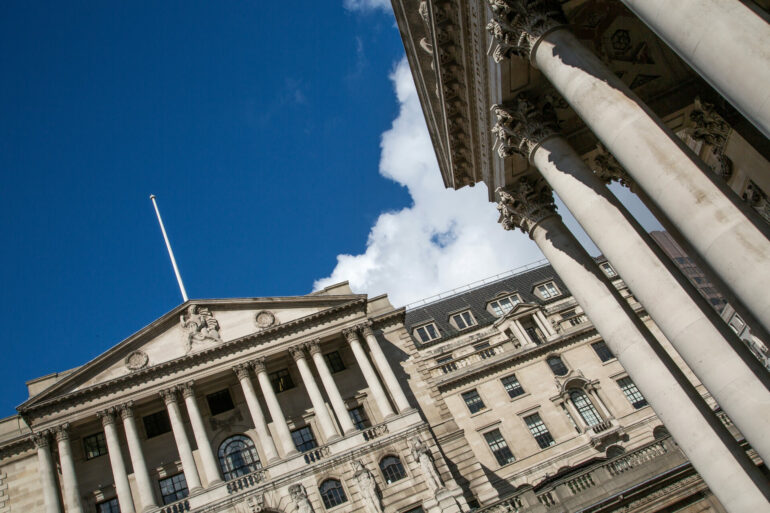Following the publication of the latest official jobs data this morning, many brokers and industry experts have been sharing their thoughts on what this means ahead of the Bank of England’s upcoming base rate decision.
The Office for National Statistics (ONS) released new data this morning, showing a 7.8% year-on-year increase in wages.
However, the unemployment rate also increased, rising from 4.2% to 4.3% in the quarter ending in July 2023.
The employment rate also dropped slightly to 75.5%, mainly due to declines in full-time self-employment.
In light of these figures, Newspage asked financial services experts about how this could impact the Bank of England’s next base rate decision.
Reaction
Craig Fish, director at Lodestone Mortgages & Protection:
“Unless we see a greater-than-expected drop in inflation data next week, a 0.25% increase in the base rate is widely expected.
“This is backed up by yesterday’s comments from Catherine Mann who sits on the Monetary Policy Committee (MPC), where she warned about the possibility of persistent inflation.”
Riz Malik, founder and director at R3 Mortgages:
“The prospect of a rate pause in September has pretty much been blown out of the water by this data.
“However, my money is still on a hold decision before the year is out given that Andrew Bailey himself thinks we could be near the top of the curve.”
Samuel Mather-Holgate, independent financial adviser at Mather and Murray Financial:
“The major point to take away from this data is that the Bank of England is crashing the economy, with a significant rise in unemployment, and it’s happening now.
“With no change to wages, it’s time for Andrew Bailey to reverse course unless he wants to see crippling unemployment metastasise throughout all sectors of the economy.
“The average UK household has had as much as it can take now, and heartbreaking stories of people losing their homes are becoming far too common. It’s time to change course.”
John Choong, equity research analyst at Investing Reviews:
“Many will have hoped that last month’s rate hike would have been the final one, especially after Andrew Bailey’s recent comments suggesting that a peak in interest rates could be just around the corner.
“However, Tuesday’s mixed basket of economic data might still trigger another 0.25% hike on the 21st of September.
“But although wages including bonuses continued to rise, the MPC may find some respite in the fact that this was due to one-off payments made in June and July to the NHS and civil service, as wages excluding bonuses remained unchanged at 7.8%.
“More encouragingly for bank rate, the unemployment rate has continued to tick up with the number of vacancies heading in the other direction, thereby easing wage pressures moving forward.
“Nonetheless, all eyes will now be on next week’s crucial CPI inflation print. Considering August’s poor services PMI data, investors will be hoping that lower-than-expected core and services inflation could trigger a pause at the next MPC meeting.”
Kundan Bhaduri, property developer and portfolio landlord at The Kushman Group:
“There are two factors driving up wages. To begin with, some of it is being directly fuelled by militant unions forcing the government’s arm to increase public pay well and truly above desired inflation levels: rail unions, junior doctors, consultants, nurses’ unions.
“Most of them are asking for and quite successfully getting pay increases at significant levels. Separately, the public expectation of future inflation has become a self-fulfilling prophecy.
“People anticipate higher prices and are therefore demanding higher wages, leading to a wage-price spiral. Large public spending on money-pit projects such as HS2 are equally important factors.
“My money is on a 0.25% rate increase in the next MPC meeting, with rates plateauing at 5.50% to 5.75% for the foreseeable future.”
Gary Bush, financial adviser at MortgageShop.com:
“The hope is that lower employment and higher unemployment data see the Bank of England’s Monetary Policy Committee stop singing to Rishi’s tune and pause its relentless series of rate hikes.”
Justin Moy, managing director at EHF Mortgages:
“Tuesday’s jobs data was a mixed bag.
“The growth of pay has remained steady, but unemployment is starting to edge up.
“Any thoughts of no base rate increase in September have probably been extinguished now, but the trends are suggesting that we are close to the peak, and comments made by Monetary Policy Committee members seem to back this up.
“Next week’s inflation figures will be vital and will be the main driver of the next base rate decision.”
Graham Cox, founder at Self Employed Mortgage Hub:
“With unemployment rising to 4.3% from 3.8% in the latest quarter, it appears higher interest rates are finally starting to bear down on the UK economy.
“Unfortunately, until core inflation starts falling significantly, we’re likely to see further tightening of the economic straitjacket.”
Charles Breen, founder and director at Montgomery Financial:
“Due to wages increasing and keeping pace for the first time in a long time with inflation, it is looking likely the Bank of England will increase rates further at the end of the month, perhaps overcompensating to get inflation under control.
“This latest wage data will just give them more impetus to do so, and record wage growth headlines will just further reinforce this groupthink from the Monetary Policy Committee.”
Elliott Culley, director at Switch Mortgage Finance:
“I have no doubt we will see a further base rate increase this month, despite Andrew Bailey’s recent comments stating we could be near the end of base rate rises.
“Even though there are signs the economy is starting to falter, the expectations are inflation will be higher this month due to fuel price increases.
“Couple that with continued strong regular pay growth and it’s hard to see a different option being taken.”




